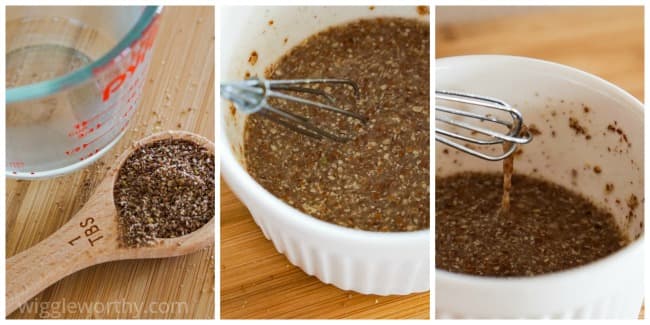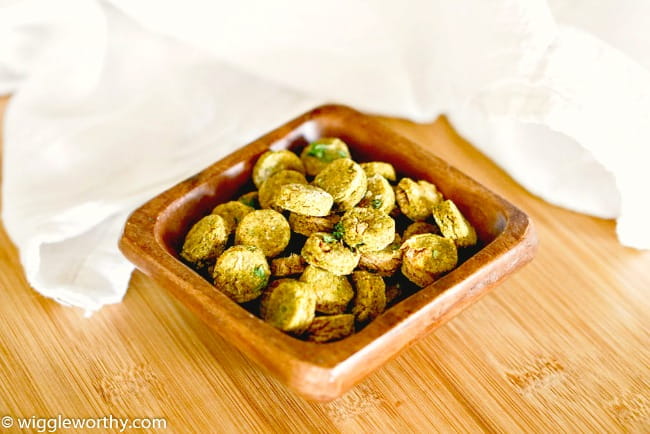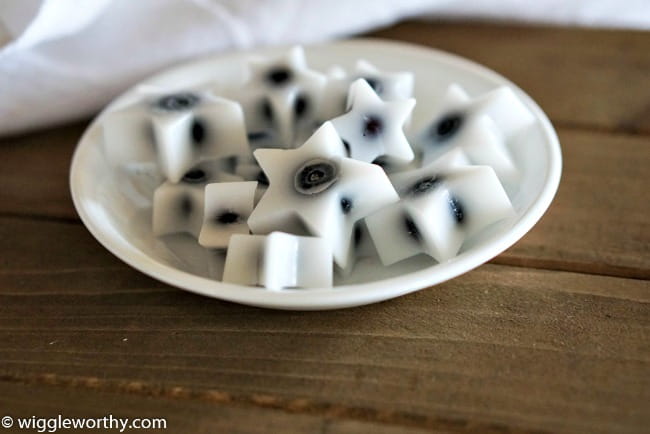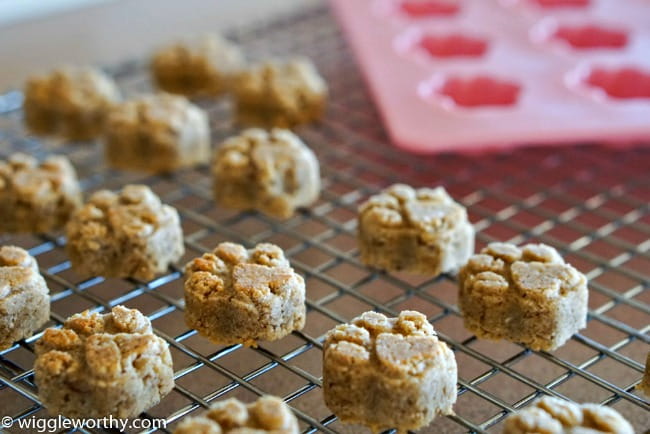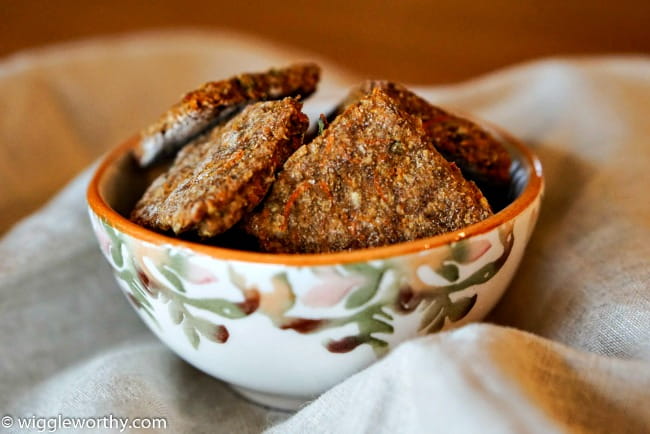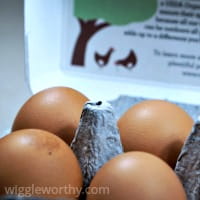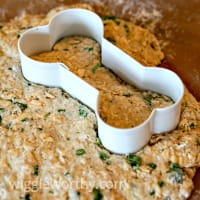Homemade Dog Treats for Allergies
Making homemade dog treats for dogs with allergies is a win for everyone.
You'll have peace of mind knowing exactly what he's eating, and Fido will enjoy tasty, healthy treats that won't make him itchy or upset his tummy.
Like I said, win-win!
Page Contents:
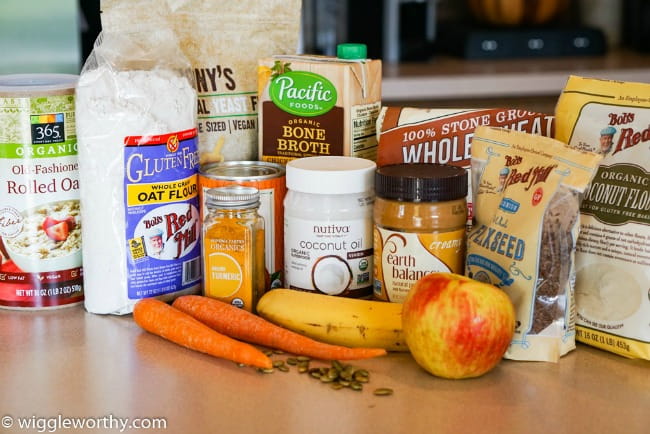
Which ingredients can cause dog allergies?
Of course all dogs are different so there's no single answer to the question of which dog treat ingredients can cause allergies.
Plus some dogs are only sensitive to one ingredient, others may have problems with two or more.
Several ingredients, or groups of ingredients are most likely to cause allergic reactions in some dogs, these are usually either protein sources or carbohydrates.
Here are the dog treat ingredients most likely to cause skin allergies:
- Certain grains (commonly wheat and rye)
- Certain Proteins (commonly chicken and beef)
- Dairy
- Eggs
- Gluten (found in many grains)
- Peanut butter
Dog Allergy Symptoms
Dogs don't generally tend to show allergies the way humans do!

Instead of sneezing, runny noses and watering eyes, your furry friend is more likely to have:
- dry, itchy skin (which can lead to the hair loss and/or bald spots)
- red, inflamed areas of skin (hot spots)
- itchy, inflamed ears (inside)
- hair loss or bald spots
- intense, consistent licking at skin, especially paws and belly (can lead to hot spots or infection)
However, dogs can suffer from seasonal allergies the way people do, and that can cause sneezing and itchy/watering eyes.
While allergies in dogs are more likely to cause skin related problems such as the ones I've listed above, food sensitivities can cause tummy troubles like loose stools or even diarrhea, vomiting and excessive gas.
Substituting allergy triggering ingredients
If your dog has allergies or sensitivities to certain foods or treat ingredients it doesn't mean he has to miss out on all that homemade deliciousness!
Most dog treat ingredients which trigger an allergy or sensitivity have several possible replacements or substitutions, and making these switches in no way reduces the tastiness or healthfulness of dog treat recipes.
Let's take a closer look at each group listed above:
GRAINS:
Specific grains such as wheat, corn and soy are the most common when it comes to making dogs itchy and uncomfortable.
A grain allergy is often due to an allergy to, or intolerance of, gluten... but not always. It's possible for other proteins in grain to cause allergy symptoms or stomach problems.
You can avoid the grains which are most likely to trigger allergies by substituting with oats, rice or quinoa.
Rather than a wheat based flour you can use coconut flour, garbanzo bean flour, almond flour, or rice flour in your homemade dog treats. Check out my Flour for Dog Treat Recipes page for more info and tips.
Oats are a grain that is generally well tolerated so this is often a good choice too.
PROTEINS:
Some of the most commonly used sources of protein in dog food and treats are also among the top allergy triggers in dogs. Chicken, beef and lamb are the top contenders.
You can replace these with what are often called 'novel proteins' (novel meaning unusual in most foods/treats).
Duck, bison or venison are good options, even turkey or salmon which are seen a bit more often can work if they are new to your dog.
DAIRY:
Dairy can often be a trigger for allergy symptoms, as well as digestive upset, in dogs with allergies and sensitivities.
Avoiding dairy products such as milk, cream, and cheese is pretty easy as there are great alternatives such as oat milk and coconut milk (also soy or almond if your dog doesn't have soy or nut allergies). Non dairy yogurts are also available
Nutritional yeast is great for adding a tangy, cheesy flavor to Fido's favorite treats, and non-dairy spreads can be used if you have a recipe that calls for butter.
EGGS:
Eggs are another very common allergen. The yolk is the most likely culprit, but occasionally egg whites can also be problematic.
If your dog reacts badly to eggs there are simple substitutions that you can use in your recipes instead.
As eggs are used as a binder in lots of dog treat recipes they're not something you can just skip without replacing them with something else.
Mashed banana, applesauce or pumpkin puree can all be used instead of eggs, but the most comparable substitute is to make a chia egg or a flax egg. You only need the right seeds and some hot water!
GLUTEN:
Of course gluten isn't an ingredient as and of itself, but is found mostly in specific grains such as wheat (found in many dog foods, treats and breads/pastas/cereals), barley and rye.
To avoid using flours containing gluten in your homemade dog treat recipes you can either opt for a store bought, ready-made GF flour, make your own GF flour blend, or use an alternative such as coconut, chickpea (garbanzo bean), rice or almond flour.
Oat flour is also a possibility but oats do contain some gluten so it depends on the individual dog as to whether this will work.
PEANUT BUTTER:
Some dogs can be sensitive to, or allergic to, peanuts, although it's common than peanut allergies in humans.
Most dogs tolerate (and LOVE) peanut butter, but if it doesn't sit well with your dog there are other nut butters that are just as delicious in homemade dog treats.
Almond butter is my favorite and I use them both interchangeably as my dogs don't have any problems with nuts!
Best dog treat ingredients for dogs with allergies
In the section above I suggested some simple substitutions you can make for ingredients which are common allergy triggers in dogs.
Every dog is different and you'll know what applies to your dog and can adjust your homemade dog treat recipes to accommodate his/her personal triggers.
However there are also some ingredients which are much less likely to cause any kind of skin allergy or digestive upset.
Here are some ingredients that dogs are less likely to be allergic to
Grains:
Rice, oats, quinoa
Flours:
Brown rice flour, oat flour, coconut flour, almond flour, garbanzo-bean flour (aka chickpea flour),gluten-free flour blend
Proteins:
Duck, venison, rabbit, bison, turkey, white fish, salmon
Eggs:
Chia or Flax eggs, or mashed banana or pumpkin puree
Vegetables:
Carrots, sweet potato, pumpkin, parsley, green beans, zucchini
Fruits:
Apples, pears, blueberries, cranberries
Other:
Flaxseed (whole or ground), turmeric, coconut oil, blackstrap molasses, nutritional yeast
Dog treat recipes for dogs with allergies
The closest you can get to a hypoallergenic homemade dog treat recipe is to use just one ingredient that is from the 'ingredients least likely to trigger allergies list' (see previous section).
For example you could dehydrate duck or rabbit meat, or carrots, or apples.
Most dogs love the chewy texture and flavor. You can find out more about making dehydrated dog treats HERE.
Or you could try some super simple frozen dog treat recipes or a gummy dog treat recipe.
Both categories use limited ingredients are are quick and easy to make.
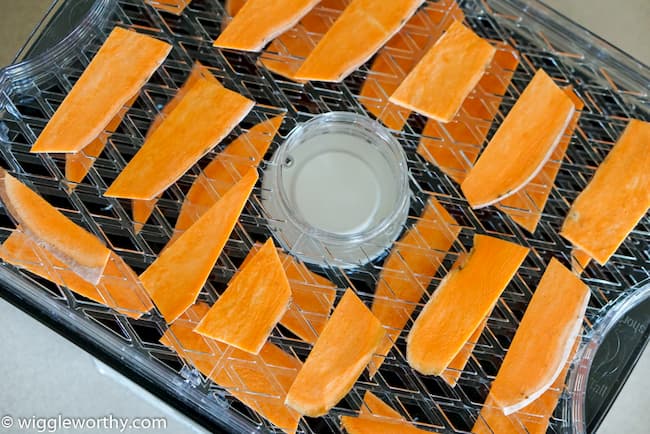
The next best option is to use ingredients that you already know your dog is allergic to, and then add from the list of low-allergen ingredients in the previous section.
It's easy to make tasty, healthy goodies for your dog this way without having to worry about whether or not he'll react badly to them.
Don't forget you have substitution options!
Remember that there are usually multiple ingredient substitutes to choose from if you want to make a specific recipe but it contains something your dog is allergic to!
For quick reference check this list towards the beginning of this article, and for a more comprehensive look visit my Baking Substitutions for Dog Treat Recipes page
Here are just a few recipe suggestions:
Several of the above recipes are taken from my Gluten Free Dog Treat Recipes page, others from the Easy Dog Treats, Frozen Dog Treats, Vegetarian & Vegan Recipes, Low Calorie Dog Treats and more.
And remeber, almost any recipe on this site can be adjusted to suit any dog using substitutions. There's something for everyone, and every dog!
I hope you find the perfect recipe for your pooch. Happy hunting.
You Might Also Like These pages...
- Home
- Homemade dog treats for allergies
